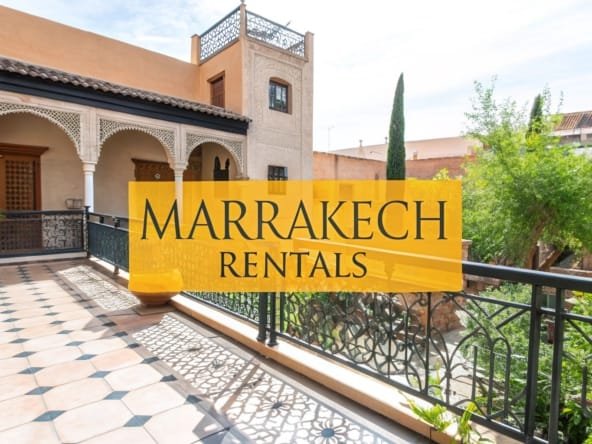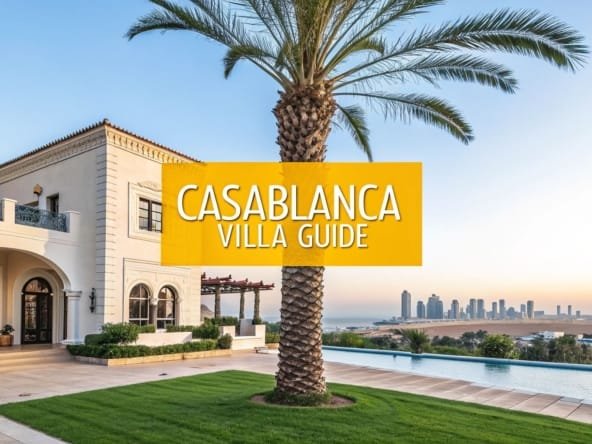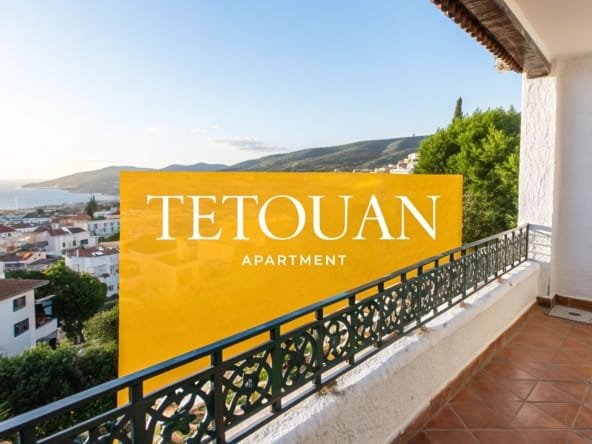Finding the right location bureau casa isn't just about picking a building; it's about understanding that Casablanca is a patchwork of distinct business ecosystems. The real trick is matching your company’s culture and operational needs to the unique vibe of each commercial district. Whether you need the prestige of Casablanca Finance City or the vibrant, street-level energy of Maarif, getting this first step right will shape your entire search.
Understanding The Casablanca Office Rental Market
As Morocco's economic engine, Casablanca powers a dynamic and often competitive office rental market. It’s the undisputed centre of the vast Casablanca-Settat region, drawing in a steady stream of national and international investment. This constant economic activity fuels a high demand for quality commercial spaces, creating a diverse landscape of options for almost any business.
The city truly offers a full spectrum of office types. You’ll find everything from entire floors in sleek, modern towers to more modest, functional units tucked away in well-established commercial buildings. This variety means that whether you're a startup looking for a flexible first home or a multinational corporation needing a landmark address, Casablanca has a space for you.
Key Market Characteristics
To navigate the market effectively, you need a solid grasp of the local dynamics. Availability and pricing can swing dramatically from one neighbourhood to the next, driven by things like the prestige of the address, accessibility, and proximity to key transport links.
Here are a few core elements that define the market:
- Prime vs. Secondary Locations: You'll see the highest rental rates in premium districts like Casablanca Finance City (CFC), which command top dollar for their status and world-class amenities. In contrast, bustling areas like Maarif or the traditional city centre offer more moderate pricing while still providing excellent commercial visibility.
- New vs. Older Buildings: Brand-new constructions often come with advanced security, high-speed fibre, and modern aesthetics, but you'll pay a premium for it. Don't overlook older, well-maintained properties; they can offer fantastic value and a unique character.
- Included Amenities: Parking is gold. It's highly sought-after and often scarce, so it can be a major deal-maker. Other key features to look for are 24/7 security, professional building management, and access to shared conference facilities.
A classic mistake I see people make is underestimating the costs beyond the base rent. You absolutely must factor in 'syndic' fees (building maintenance), local taxes, and utilities to get a true picture of your total monthly outlay.
A Glimpse Into Costs and Options
The cost of your location bureau casa will obviously be a huge part of the decision. To give you a real-world idea, a modern 140-square-metre office in the coveted Casablanca Finance City could run you about 35,000 MAD per month. That price tag reflects its premium status.
In other popular commercial hubs like Mandarona or Beauséjour, you'll find a wider range of sizes and prices. A compact 83 m² unit might be perfect for a small team, while larger 164 m² offices are also available. Just remember to budget for those additional syndic fees, which are often around 550 MAD per month. To get a better feel for current rates, you can explore more specific examples of Casablanca office rental prices and see what fits your budget.
Here’s a quick overview to help you frame your search:
Casablanca Office Rental Snapshot
| Consideration | Details & Average Figures |
|---|---|
| Prime District Rent | ~250 MAD/m² (e.g., Casablanca Finance City) |
| Secondary District Rent | 120 – 180 MAD/m² (e.g., Maarif, City Centre) |
| Average Syndic Fees | 500 – 1,000 MAD/month (covers building upkeep) |
| Key Neighbourhood Types | Financial Hubs, Bustling Commercial Centres, Tech Clusters |
| Crucial Amenities | Secure Parking, 24/7 Security, High-Speed Internet |
This table provides a starting point, but every property is unique.
By familiarising yourself with these market fundamentals, you’re already ahead of the game. This foundational knowledge is the first step toward securing a space that not only meets your operational needs but also acts as a launchpad for your business's future success.
Matching Your Business to the Right Neighbourhood
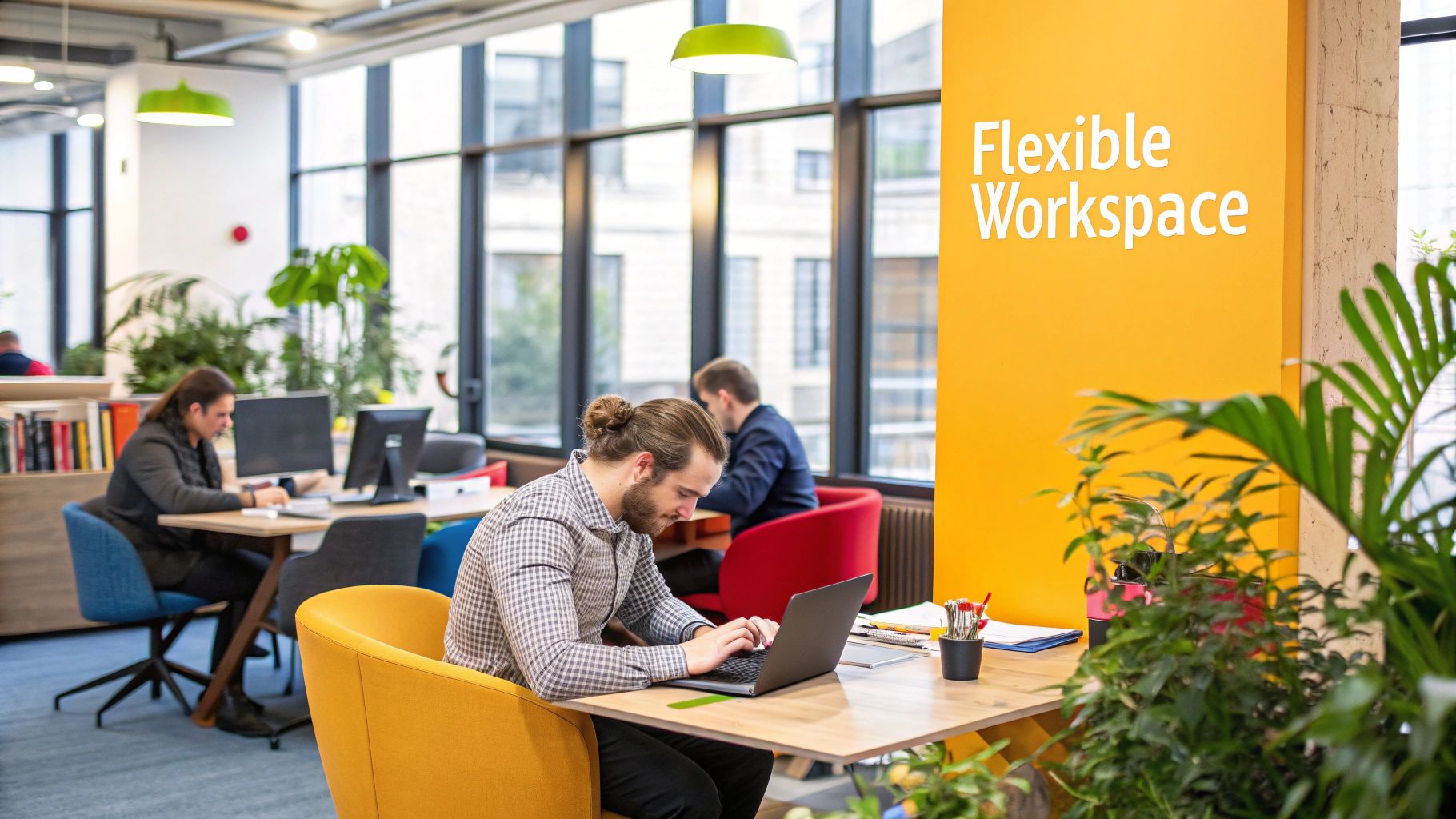
Where you set up shop in Casablanca is more than just an address on a business card. It's a strategic move that shapes your brand, influences who you hire, and defines your day-to-day operations. Finding the perfect location bureau casa means finding a space that genuinely reflects your company’s identity and supports its workflow. It’s all about striking the right balance between prestige, practicality, and price.
This isn't about simply picking the most popular spot. It's a calculated decision. A client-facing consultancy will have entirely different requirements from a tech startup that’s heads-down in development. Let's break down the city's key business districts.
The Prestige of Casablanca Finance City
If you're aiming for a top-tier corporate image, Casablanca Finance City (CFC) is the undisputed champion. Its polished, modern towers and status as Africa's premier financial hub project immediate credibility. Holding a client meeting here speaks volumes before you even say a word.
Of course, that level of prestige doesn't come cheap. Rental rates in CFC are the highest in the city, so it’s a better fit for established corporations or companies where a powerful image is a non-negotiable part of the business model. You’re not just renting square metres; you're investing in the address itself.
The Commercial Energy of Maarif
Maarif offers a completely different vibe—it’s the commercial heart of the city, and it beats fast. The district is a whirlwind of activity, buzzing with shops, cafés, and a diverse mix of businesses. This creates an energetic atmosphere that many teams find incredibly motivating. Plus, its central location and great transport links make it one of the most accessible areas.
Maarif is a major player in the office rental market, especially for businesses looking for premium spaces with practical perks. For instance, a large office here might go for around 63,000 MAD per month (excluding tax), but that price often includes necessities like several bathrooms and, crucially, dedicated parking. For a closer look at what's available, exploring Maarif's high-end office rental market can show you how these amenities justify the cost.
Choosing a neighbourhood is a long-term commitment that affects everything from your daily commute to your ability to attract top talent. I always advise clients to visit their top choices at different times of the day. Get a real feel for the traffic, the noise, and the local vibe before you even think about signing a lease.
The Tech Hub of Sidi Maarouf
If you’re in the tech or BPO sector, you probably already know about Sidi Maarouf. This district has organically grown into Casablanca's tech nucleus, attracting multinational giants and nimble startups alike. Its strategic location near the airport and major motorways is a huge logistical advantage.
The real magic of Sidi Maarouf, however, is its ecosystem. Being surrounded by other tech firms creates a powerful network and gives you direct access to a specialised talent pool. The office parks are modern and purpose-built, often with campus-style amenities that are a big draw for a younger, tech-savvy workforce. For more on the city's broader appeal, our guide on why Casablanca is Morocco's hottest real estate hub provides some excellent background.
Finally, don’t write off the traditional City Centre (Centre-Ville). It provides a compelling mix of historic charm and commercial clout, often with more approachable price tags. This area can be a fantastic choice for businesses that value a central location and the classic, authentic feel of Casablanca.
Pinpointing and Assessing Your Next Office
Once you’ve settled on a neighbourhood, the real search for your office space begins. This isn't just about scrolling through listings; it's a careful mix of online research and old-fashioned, in-person evaluation. Nailing this part of the process ensures the space you choose is more than just a pretty picture—it has to be a functional home for your business.
Your first stop will almost certainly be online. The big Moroccan property portals are indispensable here. I always start my clients on Mubawab, Sarouty, and Agenz. Use their filters for neighbourhood, size, and price to get a solid lay of the land and build an initial list of contenders. This is your high-level sweep to see what's actually on the market.
At the same time, it’s often worth bringing in a professional commercial real estate agent. A seasoned agent offers more than just listings; they have inside knowledge about specific buildings, landlords, and often, spaces that haven't even hit the public market yet. They can be a huge asset when it comes time to negotiate, saving you a lot of hassle and potentially a good chunk of money.
Making the Most of Your Viewings
With a shortlist in hand, it's time for viewings. This is where the real decision-making happens. It’s so easy to get distracted by a great view or modern finishes, but you have to look deeper. A beautiful office with shaky infrastructure isn't an asset; it's a problem waiting to happen.
When you're on-site, be systematic. Test everything. I mean everything. Walk to every corner of the office and check your phone's signal. Find out where the fibre optic connection comes into the building and see the server room. In today's world, spotty internet can bring a business to its knees.
A tip I always give my clients: schedule two separate viewings. The first should be during the busiest part of a workday to gauge the real-time energy and noise. The second should be in the evening or on a weekend. This will tell you a completely different story about things like soundproofing, traffic flow outside, and the building's after-hours security.
The Non-Negotiable Infrastructure Check
During your inspection, zero in on the core systems that will affect your team every single day. A methodical approach keeps you from being wooed by fresh paint while missing a critical flaw.
Here’s a practical checklist I use to evaluate a space:
- Connectivity: Don't just ask if there's fibre internet; confirm it. Find out which providers are already in the building and what the process for getting connected looks like.
- HVAC: Test the air conditioning and heating yourself. A powerful, reliable AC is absolutely essential in the Casablanca heat. Ask about the age of the system and its maintenance history.
- Security: Is there 24/7 security staff? What about access controls like key cards or fobs? Check for CCTV in the lobby, lifts, and other shared spaces.
- Building Upkeep: Look closely at the condition of the common areas—the lobby, restrooms, and lifts. How clean and well-maintained they are is a direct reflection of the building management (syndic) and how responsive they'll be.
- Noise: Just listen. Can you hear your neighbours through the walls? What about street noise or the hum of the building's own systems? What feels peaceful on a quiet tour might be incredibly distracting on a busy Tuesday afternoon.
Treating your search less like a tour and more like an audit is the secret. This detailed groundwork is what separates finding an okay space from finding one that will genuinely support your business's growth for years to come.
Getting to Grips with Your Moroccan Commercial Lease
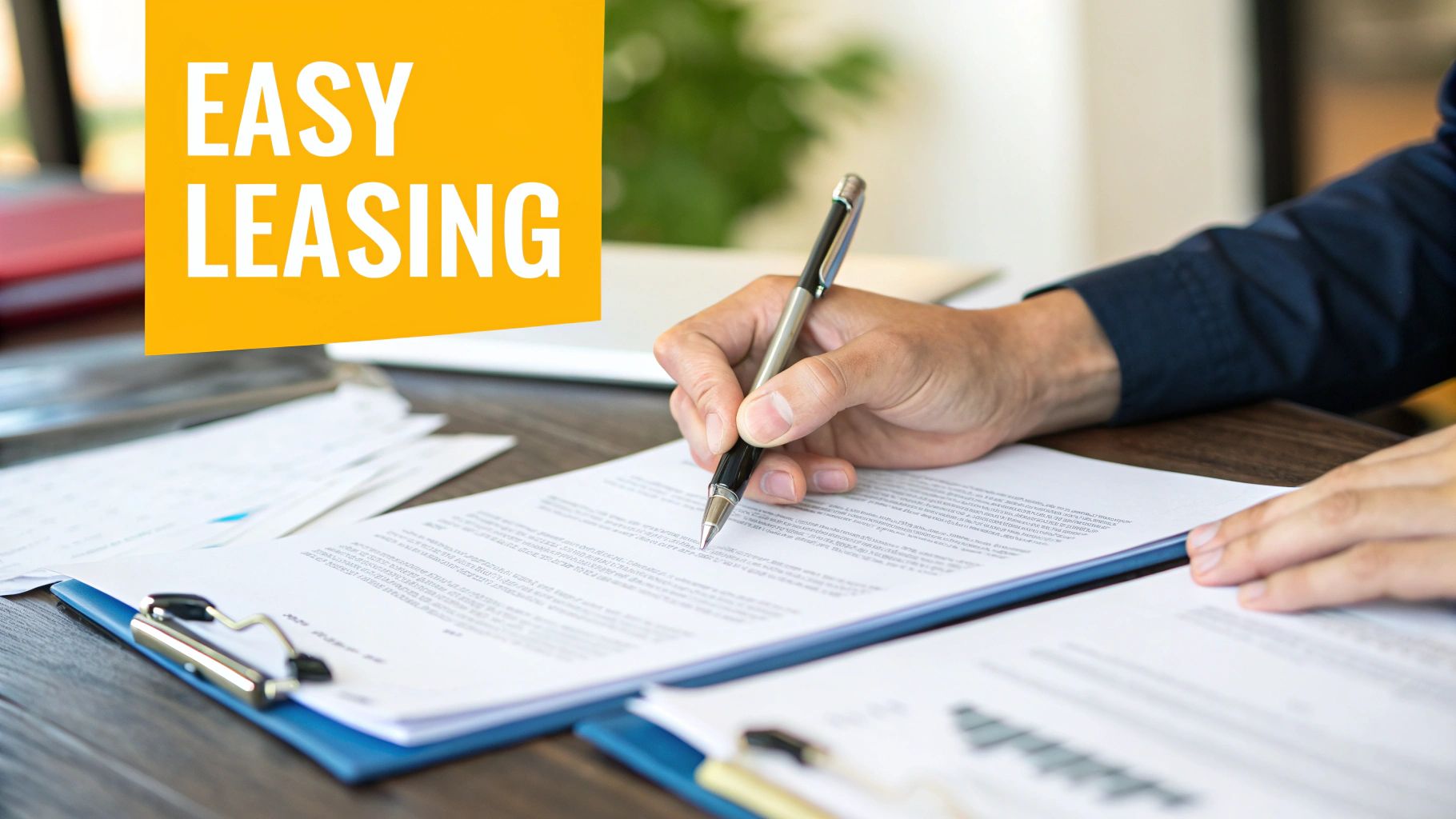
So, you’ve found the perfect office. Great. Now comes the part that trips up many businesses: the commercial lease, or bail commercial. This isn't just a standard rental agreement. It's a complex legal document full of Moroccan specifics that will dictate your rights and responsibilities for years to come.
Getting this wrong can lead to some serious financial and legal headaches. The goal is to sign that paper with complete confidence, knowing the terms are fair and work for your business, not against it.
What to Look for in a Bail Commercial
When the lease lands on your desk, a few key clauses need your immediate attention. The first is typically the lease duration. Most Moroccan commercial leases follow a "3-6-9" year structure. This setup is actually quite tenant-friendly, giving you the option to terminate the agreement at the end of each three-year mark. It offers a welcome bit of flexibility.
Then there's the concept of the droit au bail, or leasehold right. This is a huge deal in Morocco and something you need to understand. It’s essentially the value of the lease itself and includes a legally protected right to renew after you’ve occupied the space for two straight years. This right can often be sold or transferred, making it a tangible asset for your company. Our full guide to the process of renting an office in Casablanca unpacks these legal points in more detail.
Looking Beyond the Monthly Rent
The advertised rent, or loyer, is just the starting point. To truly budget for your location bureau casa, you have to factor in all the associated costs, which can easily add a substantial amount to your monthly outlay.
Here’s a realistic breakdown of what else you'll be paying for:
- Security Deposit (Caution): This is standard. You can expect to put down a deposit equal to two or three months' rent. It’s held by the landlord and returned when you leave, provided the office is in good shape.
- Agency Fees: If a real estate agent helped you secure the space, their fee is usually the equivalent of one month's rent.
- Building Fees (Syndic): These are your monthly contributions for the upkeep of common areas, security, and other shared building services. Always ask for a detailed breakdown so you know exactly what you’re paying for.
Don’t forget: you aren't just renting four walls and a door. You're stepping into a regulated legal and financial contract. Always have a legal professional—one who knows Moroccan commercial law inside and out—review your lease before you even think about signing. That small upfront cost can save you from enormous problems down the line.
Taking the lease seriously is particularly important in a market like Casablanca. The Casablanca-Settat region is the engine of the Moroccan economy, powering a huge amount of the country's commercial real estate activity. With strong demand from both local and international investors, the rental market is competitive. You can discover more about Casablanca's investment appeal to get a better sense of the economic forces at play.
Actionable Negotiation Strategies That Work
So, you’ve found an office space that looks promising. Great. Now comes the part where you can really make a difference to your bottom line. Securing the right terms for your location bureau casa is arguably more important than haggling over the monthly rent itself.
Effective negotiation isn't about being aggressive; it's about being prepared. It's about knowing the market, understanding what a fair deal looks like, and clearly communicating what you need to make the space work for your business.
Where to Focus Your Negotiation Efforts
Let's be realistic. While the headline rental price might have a little wiggle room, you'll often find landlords are much more flexible on other parts of the lease agreement. This is where you can find serious value.
Here are the three areas where I’ve seen clients have the most success:
- Rent-Free Fit-Out Period (Franchise de Loyer): This is a standard and very reasonable ask. You’ll need time to move in, get your internet sorted, and arrange furniture before you can actually start working. Requesting one or two months rent-free to accommodate this setup period is a common practice in Casablanca.
- Included Parking Spaces: In a city like this, a dedicated parking spot can feel like gold dust. Don't underestimate its value. For every 50-100 square metres of office space, try to negotiate at least one included parking space. It’s a huge perk for you and your team.
- Lease Escalation Clauses: This is a big one for long-term planning. You need to know exactly how—and when—your rent can go up. Try to negotiate a cap on annual increases or link them to a predictable government index. This protects your budget from nasty surprises a few years down the road.
I've found that landlords are often more willing to concede on a rent-free period or extra parking than they are on the base rent. Why? Because it allows them to keep the official "headline rent" high for valuation purposes, while you still get a deal that saves you real money. It's a classic win-win.
Look Beyond the Rent: Calculate Your True Costs
To negotiate from a position of strength, you can't just focus on the monthly rent cheque. You need a complete picture of what you'll actually be spending. The total occupancy cost is what truly matters.
This infographic breaks down the key elements you absolutely must factor into your budget.
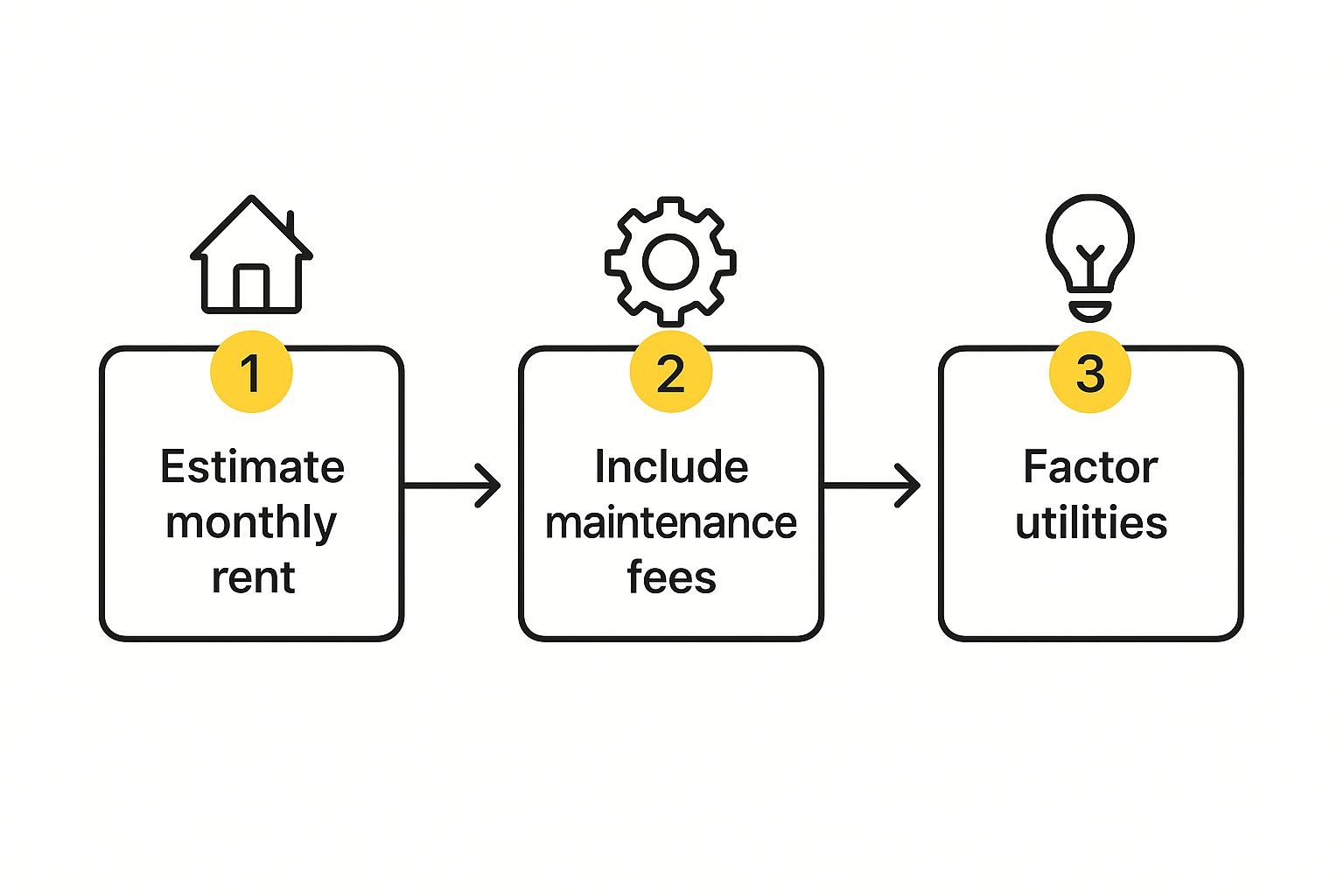
Running through this calculation gives you a realistic baseline. It's your financial reality check, ensuring there are no hidden costs waiting to trip you up later.
How to Finalise the Agreement
Once you’ve shaken hands on the main points, don't pop the champagne just yet. The way you formalise the agreement is crucial for setting up a good, professional relationship with your landlord.
First, always get everything in writing with an Offer to Lease (Offre de Location). This document isn't the final lease, but it locks in all the terms you've just agreed upon—the rent, deposit, lease duration, rent-free months, parking, everything. It prevents any "misunderstandings" from creeping in before the final contract is drawn up.
Next, and this is non-negotiable, have a legal professional review the final commercial lease (bail commercial). Their job is to confirm that all your verbal agreements have made it into the legally binding document and to flag any problematic clauses you might have missed.
Once that's done and both sides have signed, you're officially good to go. This careful, step-by-step approach ensures you start your tenancy with clarity and a solid foundation.
Answering Your Key Questions About Renting an Office in Casablanca
As you get closer to choosing your perfect location bureau casa, a few questions inevitably pop up. They’re the final hurdles before you feel ready to sign on the dotted line. Getting these details straight is crucial, so let's walk through the most common queries that come up time and time again.
Diving into a commercial lease in a new city can feel a bit daunting. But once you understand the local norms around lease terms, costs, and legal requirements, you'll be able to move forward with confidence.
What Does a Standard Commercial Lease Look Like?
In Casablanca, you’ll constantly hear about the “3-6-9” year lease. At first glance, it sounds incredibly long and rigid, but it’s actually more flexible than its name suggests. This structure gives you, the tenant, the option to end the lease at the conclusion of each 3-year mark, provided you give the proper notice.
It's a clever system that balances everyone's needs. Landlords gain the stability of a long-term occupant, while you aren’t trapped for nine years if your business outgrows the space or your plans shift. It has become the standard because it offers a predictable and fair framework for both sides of the table.
Is the Advertised Rent My Total Monthly Cost?
This is a big one, and the short answer is almost certainly no. The price you see advertised is what’s known as the loyer hors charges—the rent excluding charges. Think of it as the starting point. Your actual monthly payment will be higher once you factor in the additional fees.
Be sure to budget for these essential extras:
- Syndic Fees: This is your share of the building's operating costs, covering things like security, cleaning of common areas, and general maintenance.
- Local Taxes: Tenants are responsible for paying the local business and property taxes tied to the commercial space.
- Utilities: Your electricity, water, and internet are entirely separate bills and never part of the base rent.
The advertised rent is just one piece of the puzzle. To avoid any nasty surprises down the road, always insist on a full breakdown of all associated charges. This is the only way to calculate your true monthly financial commitment.
Can My Foreign Company Rent an Office Directly?
No, a company that isn't registered in Morocco cannot directly sign a commercial lease. The first and most critical step is to establish a local legal entity. This involves officially registering your business here, which could be as a subsidiary, a branch office, or another form of legal presence recognised under Moroccan law.
This isn't just a preference; it's a legal must. Landlords will require proof of a Moroccan-registered company, complete with a local tax ID number (Identifiant Fiscal), before they’ll even entertain a lease agreement. This ensures the tenancy adheres to Moroccan commercial law. Make sure you build this administrative step into your timeline well before you hope to move in.
Finding the right commercial space is a major milestone for any business. At Rich Lion Properties, our job is to make that process straightforward and clear. If you’re ready to secure your ideal office in Casablanca or anywhere else in Morocco, our team has the on-the-ground expertise to guide you. Explore your options and get expert advice by visiting us at https://richlionproperties.com.

